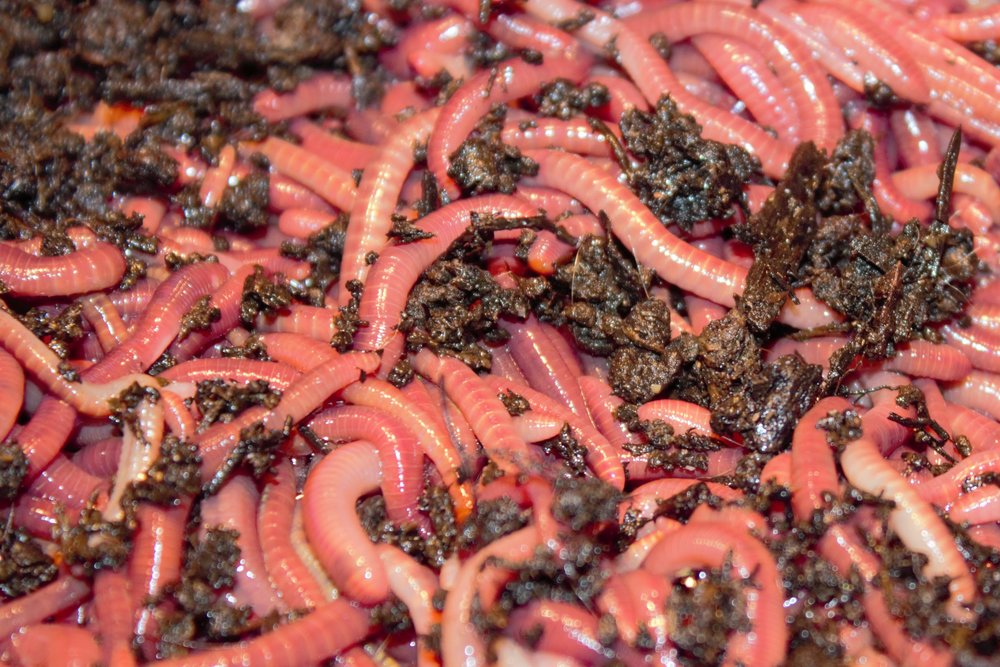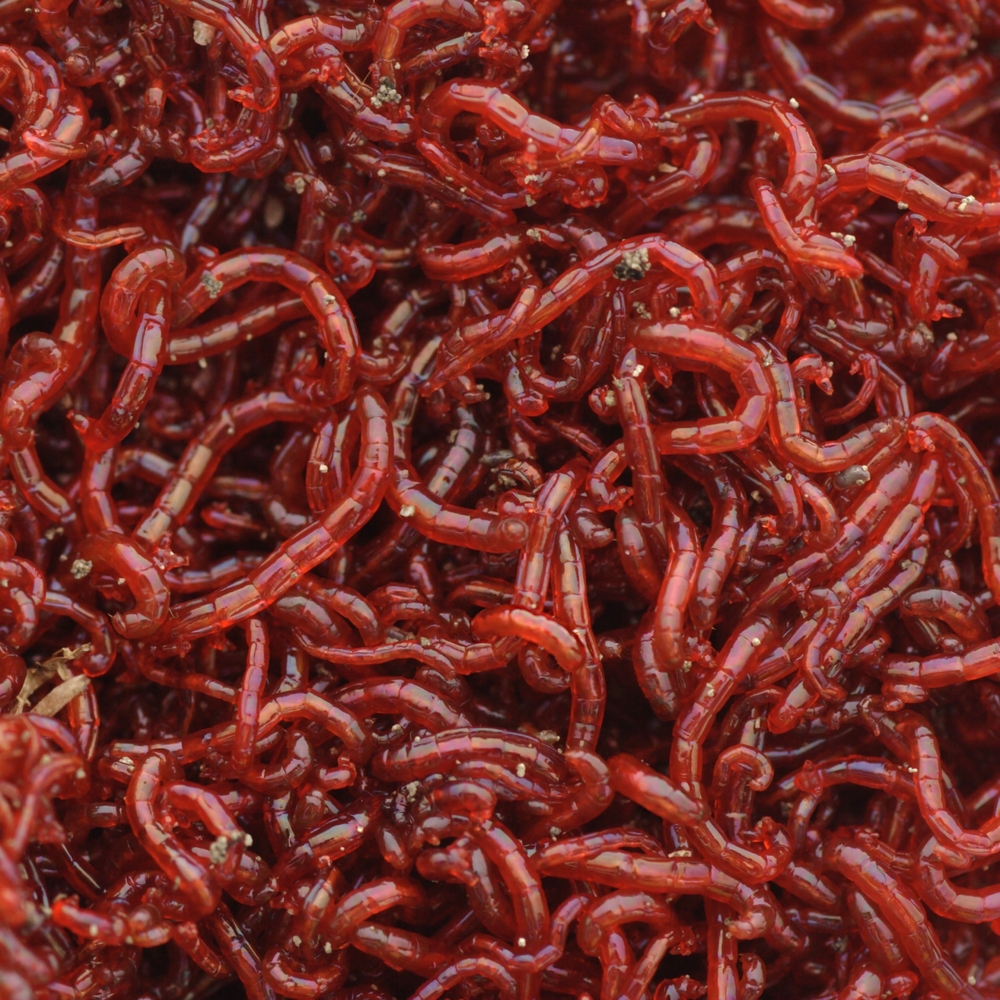Red wigglers: Enrich your garden naturally
Red wigglers: Enrich your garden naturally
Blog Article
Leading Benefits of Using Red Wigglers for Vermiculture
The usage of red wigglers, or Eisenia fetida, in vermiculture presents several engaging benefits that expand past simple composting. These microorganisms not only enhance soil fertility and framework however also assist in an extra effective decomposition procedure while proactively joining waste decrease. In addition, their existence substantially enhances microbial task within the soil, producing a prospering ecological community for plant development. As we discover these benefits better, it ends up being apparent that the ramifications of including red wigglers right into farming practices are both extensive and far-reaching.

Improved Soil Fertility
Boosted dirt fertility is a crucial component of lasting farming, and red wigglers play a vital duty in this process. As a species of earthworm, red wigglers (Eisenia fetida) are particularly efficient in enhancing dirt health via their natural actions and biological features. They eat organic waste, simplifying right into nutrient-rich castings that substantially improve soil framework and nutrient accessibility.
The spreadings generated by red wigglers are abundant in vital nutrients, consisting of nitrogen, phosphorus, and potassium. Furthermore, the presence of red wigglers in the dirt enhances microbial task, further adding to nutrient cycling and soil oygenation.
Integrating red wigglers into farming techniques not only improves soil fertility however also minimizes the demand for synthetic plant foods, aligning with natural farming principles. Consequently, employing red wigglers in vermiculture stands for a sustainable approach to dirt monitoring, ultimately supporting the lasting stability of agricultural systems.
Fast Disintegration Process
The fast disintegration procedure facilitated by red wigglers is a remarkable sensation that substantially benefits both composting and dirt health and wellness. These earthworms, recognized scientifically as Eisenia fetida, play an important function in breaking down natural matter effectively. By eating kitchen scraps, plant debris, and other organic waste, red wigglers convert these products into nutrient-rich spreadings at an increased rate.
The procedure starts as the worms consume natural matter, where it is then absorbed in their specialized gizzards - red wigglers. This break down not only lowers the volume of waste but also improves the accessibility of important nutrients. As red wigglers secrete spreadings, they release a byproduct that is brimming with valuable microorganisms, which additionally aids in decay and improves the garden compost
(buy red wiggler worms)In addition, their burrowing tasks freshen the garden compost, promoting optimum microbial activity. This dynamic environment increases decomposition, bring about a faster turnover of organic product into functional compost. As a result, gardeners and farmers can enjoy quicker accessibility to top notch compost, thus boosting their capability to sustain plant development and total soil vigor. The performance of red wigglers in sites the decomposition process is therefore vital for sustainable composting techniques.
Better Dirt Framework

Additionally, the castings created by red wigglers are rich in beneficial microbes and nutrients, which promote a healthy dirt environment. These castings enhance the dirt's moisture retention capability, minimizing the need for regular watering. As the raw material is broken down right into better bits, it boosts the soil's accumulated security, preventing erosion and compaction.
The presence of red wigglers likewise fosters a varied microbial community, which plays an essential duty in nutrient cycling. This diversity better boosts dirt fertility and strength, allowing it to support a large range of plant.

Reduction of Waste
Vermiculture using red wigglers plays an essential function in the decrease of waste, particularly natural waste that would or else wind up in garbage dumps. The procedure of vermicomposting effectively transforms various kinds of natural materials, such as food scraps, backyard waste, and paper products, right into nutrient-rich vermicast. This not just draws away waste from land fills however also lessens the ecological effect connected with waste decomposition in these sites, which typically produces hazardous greenhouse gases like methane.
By utilizing red wigglers, individuals and services can handle their organic waste more sustainably. These worms have an exceptional ability to eat considerable quantities of organic product, transforming it right into valuable compost that can be used to improve dirt. This process not only reduces the quantity of waste yet likewise extends the life-span of landfills, inevitably adding to lose monitoring services.
Furthermore, adopting vermiculture practices motivates a society of recycling and sustainability. As more individuals identify the benefits of composting with red wigglers, the collective effect on waste reduction becomes significantly considerable. In recap, utilizing red wigglers for vermiculture offers a reliable approach for lowering organic waste while boosting ecological stewardship.
Raised Microbial Task
While involving in vermicomposting, the existence of red wigglers significantly improves microbial task within the composting system. These earthworms develop a favorable environment for advantageous microbes by freshening the compost and breaking down organic material. As the worms take in food scraps and other natural waste, they eliminate nutrient-rich spreadings, which act as an environment and food resource for varied microbial areas.
The enhanced microbial activity helps with the rapid decomposition of raw material, leading to much more effective vitamins and mineral cycling. This procedure not only accelerates garden compost growth yet additionally enhances the total high quality of the final item. Microbes, such as microorganisms and fungis, thrive in the worm-rich environment, resulting in a higher focus of crucial nutrients like nitrogen, phosphorus, and potassium in the garden compost.
In addition, the synergistic connection between red wigglers and microbes adds to virus suppression and enhances dirt wellness. By promoting a robust microbial population, vermicomposting with red wigglers promotes biodiversity in the garden compost, inevitably leading to richer, healthier dirt for plant growth. Therefore, the role of red wigglers in raising microbial task is vital for effective and lasting vermiculture practices.
Verdict
In recap, the usage of red wigglers in vermiculture supplies countless benefits, including boosted soil fertility, efficient disintegration of raw material, and enhanced dirt structure. Their distinct burrowing actions not just promotes much better water retention yet also help in the decrease of waste, adding to sustainable waste monitoring techniques. Furthermore, the enhanced microbial activity promoted by their spreadings supports a thriving community, ultimately causing healthier plants and more resilient agricultural systems.
Report this page